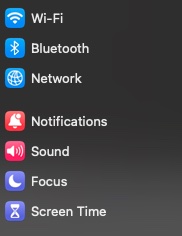 This semester, faculty scramble at an unaccustomed pace to set policies for the use of generative artificial intelligence. Our assignments will never again be the same.
This semester, faculty scramble at an unaccustomed pace to set policies for the use of generative artificial intelligence. Our assignments will never again be the same.
We cloistered academics are having a “Netscape moment.” As the Wikipedia page on the Netscape browser notes, the term became a metaphor for public awareness that accompanies “the dawn of a new industry.” I could not find a first use of the phrase. If you know, please share it in comments.
The shock of this new AI technology, in particular its rapid appearance in our professional lives, calls to mind an instant in 1993 (or was it 4? Tempus fugit) when I spent two weeks at Michigan Tech University, learning how to teach in networked classrooms. One event in particular remains in my brain: seeing a weather pattern from a NOAA satellite move across the screen of a computer, the video feed part of a new application, a “browser” called Mosaic.
In ten seconds, I recognized that everything we do online, personally and professionally, would change. If only I had invested in the firm; I thought of all the applications that we now have–banking, reserving flights, watching television, buying things we probably do not need. I recalled my grandfather’s story of how, as a child, he first saw a motorcar in Southeastern Turkey. He would always say to me “I knew that the world had changed forever.”
Mosaic yielded to Netscape, and for many first-time Internet users, that browser spurred an “aha” moment like my own. From a 2021 story at LinkedIn, we see how usage works for our metaphor, as the writer claims that “cryptocurrency is having its ‘Netscape moment.’ Banks have now been approved by the office of the controller of currency to be custodians of cryptocurrencies.” Thus when our policies and outlook change fast because of a new technology’s adoption–in this case, cryptocurrency–our metaphor comes into play.
You can bet that IPOs for AI firms will be enormously popular. Some will crash. They may crash as hard as Crypto, an innovation I absolutely will not touch.
Other innovations thrive. That’s Silicon Valley history.
If you have useful words or metaphors, by e-mailing me (jessid -at- richmond -dot- edu) or leaving a comment below.
See all of our Metaphors of the Month here and Words of the Week here.
Image source: Wikipedia

